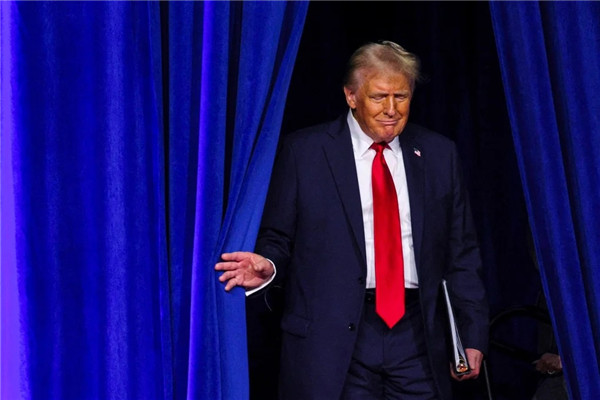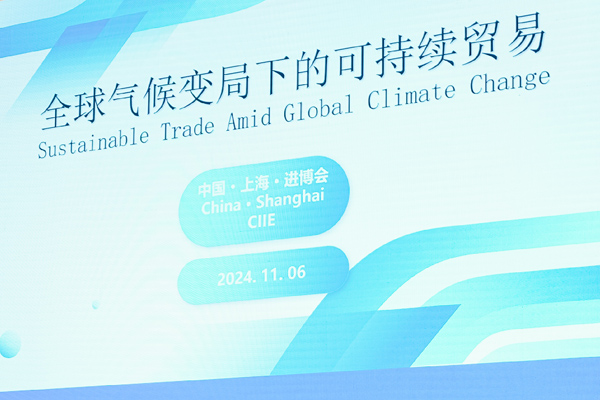CCG Releases Report Suggesting to Strengthen China-US Infrastructure Construction Cooperation
May 27 , 2019As Chinese President Xi Jinping paid the first state visit to the United States after Donald Trump was sworn in as the new president, the Center for China and Globalization released a report on April 5 to explore the potential opportunities to strengthen the China – US cooperation on infrastructure construction under the Trump administration.

The report, titled “ Infrastructure Cooperation-New Opportunities for US-China Relations,” reviews the background of the Trump administration’s infrastructure development agenda and examines the potential opportunities and barriers that lie in the bilateral cooperation in this area.


As CCG President Wang Huiyao introduced, the report points out the strong complementarity of China and the United States in the infrastructure sector and identifies the areas where the two countries can find a wide range of win-win deals. In addition, the report provides suggestion on how to capitalize on those opportunities to improve the infrastructure and overall bilateral relations.
The report was released at a time when the China-US relations were under spotlight upon President Xi’s state visit to the US. Despite mixed speculations, US Secretary of States Rex Tillerson has previously emphasized the importance to maintain a friendly and cooperative bilateral relationship.
Wang, as one of authors of the report, noted the significance of the Xi-Trump summit as the first bilateral meeting a new US president arranged with the Chinese counterpart within his first 100 days in the White House. Although President Trump has rolled out a number of controversial and tough policies against globalization and free trade, China insists on pushing forward its opening-up policy and efforts to build an open economy system. How to find a new area to maintain and strengthen the bilateral cooperation has become a tough task for China’s economy development and foreign affairs.
As Chief Economics Commentator of the Financial Times Martin Wolf said, the key agenda of the Xi-Trump summit would be finding new areas for cooperation. Since the Trump government is planning to rebuild the US infrastructure and China has made extraordinary achievement in this regard, infrastructure development should be the new engine to drive the bilateral relations development in the near future.
Echoing Wolf’s argument, CCG’s report pointed out that one of President Trump’s key agenda items to revive the US economy is to increase infrastructure investment. He has announced a plan during his first speech at the Congress to invest USD 1 trillion in infrastructure construction in the next 10 years.
China, on the other hand, has comparative advantage in this sector in terms of capital, technology and expertise. According to official statistics, in the first 10 months in 2016, China’s investment in infrastructure has reached USD 1.4 trillion, meaning that China has been able to meet Trump’s infrastructure investment objective for the next 10 years in less than one year. In the meantime, China’s investment in the United States still maintains a strong momentum, with the total amount hitting a new historic record at USD 45.6 billion in 2016.
The report proposes to strengthen the China-US infrastructure construction cooperation through: 1) Chinese and American infrastructure construction companies’ joint venture and programs; 2) comprehensive industrial capacity cooperation in railway transportation projects; 3) expanded export, investment and cooperation of Chinese machinery equipment manufacturers in the US market; 4) increasing capital flow from China and the United States into infrastructure building sector; 5) growing momentum in public-private partnership in both countries; 6) and the rising demand for infrastructure improvement to reach the Trump government’s economic objectives.
Meanwhile, the report also identifies the possible barriers for the China – US cooperation in infrastructure, such as the impact on the US domestic market competition, the viability of PPP programs, and political uncertainties, and proposes the measures accordingly to offset the constraints, including: 1) localizing Chinese companies in the United States; 2) integrating of Chinese capital from various sources to jointly participate in the US infrastructure building; 3) involving the U.S. in the One Belt One Road initiatives for infrastructure; 4) promoting Chinese investment abroad and establishing China-led infrastructure cooperation mechanism; 5) enhancing exchange of Chinese and American provincial/state governments to seek more infrastructure cooperation at the local level; 6) expanding the role of Chinese and American think tanks in public diplomacy to provide more advice for sound policy making; 7) improving international PR relations to create a better environment for Chinese investment abroad.
In conclusion, the report raises the concern that President Trump’s grand blueprint for infrastructure investment may encounter setback at the Congress. Although Republicans are holding a majority of seats in both the Senate and the House, Trump has caused severe split within the party during his presidential campaign, making it uncertain if his agenda can win sufficient support from the Congress.
CCG believes that President Trump would take a pragmatic attitude in his meeting with President Xi and recognize the importance of working with China to improve infrastructure and overall economy, as a key condition to consolidate his administration in the next years.






